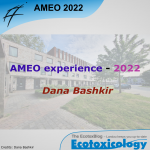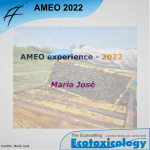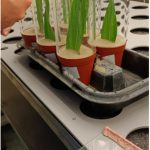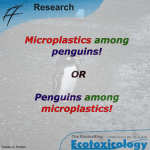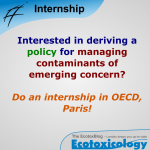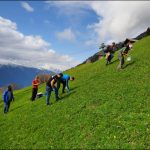Each year, several students of the Environmental Pollution Management (Ecotoxicology) Program complete an 8-week internship, the so-called “AMEO”. The AMEO is performed either at an external university, governmental or industrial research institute where students learn to apply the competences achieved during their study. Students also use this opportunity to travel and explore not only Germany, but also other countries. In this blog post, Dana Bashkir shares her AMEO experience in Wageningen University and Research, Netherlands.
Continue readingAMEO experience – Dana Bashkir (2022)
